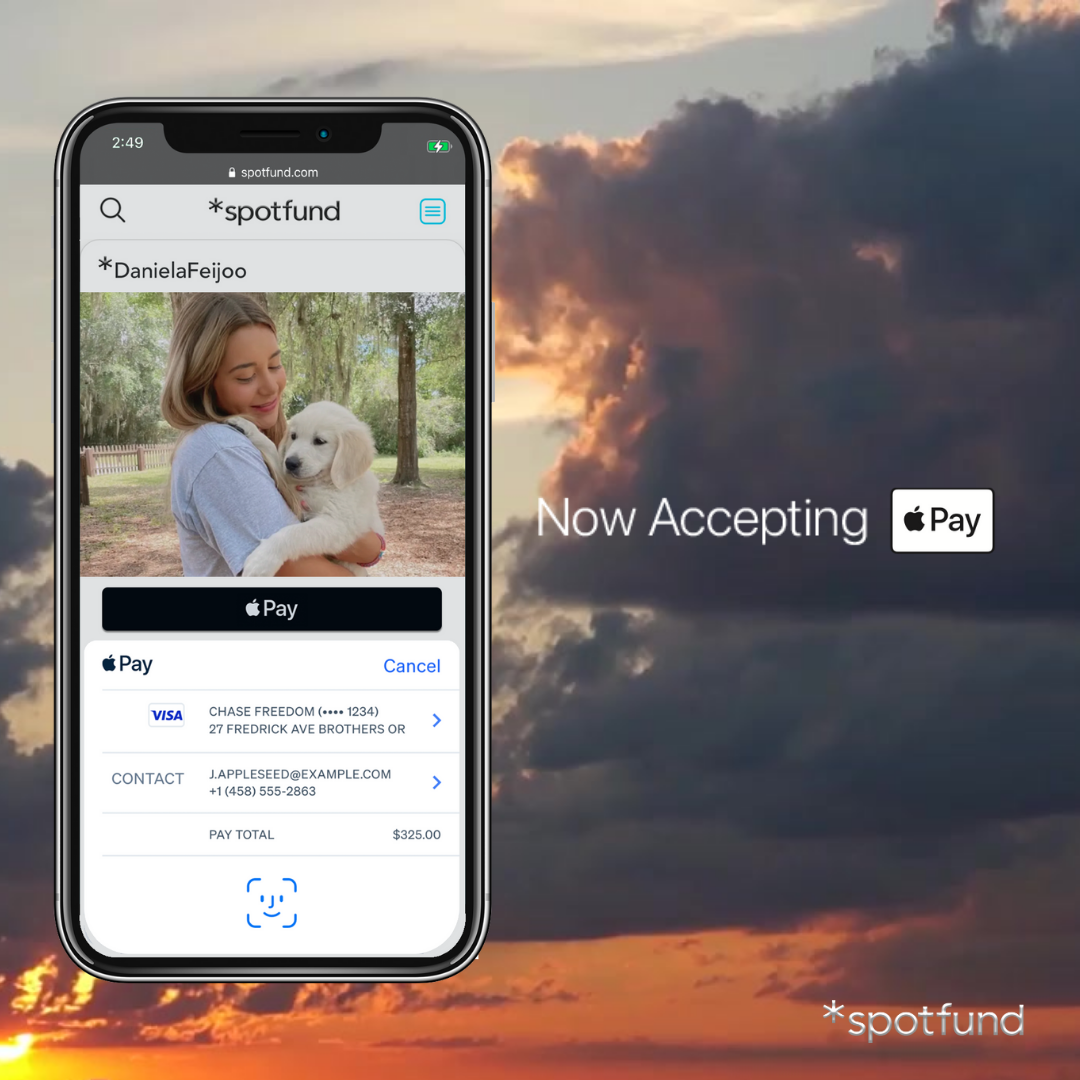As a cornerstone for many higher education institutions, fundraising provides vital financial support for scholarships, facility upgrades, research, and countless other opportunities that enrich the educational experience. It can be the difference between a good university and a truly great one, the kind that shapes leaders, thinkers, and doers who go on to change the world.
But here's the catch - successful higher education fundraising doesn't just happen by accident. It requires a well-defined, thoughtfully planned strategy. A strategy that resonates with prospective donors, inspires action and leads to a consistent stream of support. That's where the real challenge lies and that's where I come in.
In this article, we'll be navigating the labyrinth of university fundraising together. I'll be your guide, armed with a wealth of experience and a slew of successful university fundraising campaigns under my belt. Together, we'll explore a range of tried and tested strategies designed to help your institution unlock unprecedented fundraising success. So, buckle up, and let's embark on this journey. The road to fundraising success awaits!

The Need for Fundraising in Universities
In recent years, the cost of higher education has risen dramatically. This financial burden, which often results in crippling student loans, is a significant barrier to many aspiring scholars. Let's break it down:
-
Skyrocketing Tuition: It's no secret that tuition fees have been on an upward trajectory for the past few decades. According to a report by the College Board, the average cost of tuition and fees at a public four-year institution has risen by over 25% in the last ten years alone.
-
Living Expenses: Apart from tuition, there are various other expenses to consider when it comes to university education. These include housing, meals, books, transportation, and personal expenses. All of these costs add up and can put further strain on university students and their families.
-
Student Loan Debt: To cover these escalating costs, many students turn to loans. The result? A generation burdened with debt. As of 2021, the total student loan debt in the U.S. has exceeded a staggering $1.7 trillion.
It's clear that the cost of higher education is a daunting obstacle for many. But this is where university fundraising comes in, providing a beacon of hope amidst this financial storm. Fundraising efforts can help offset these costs and make higher education more accessible to all. Here's how:
-
Scholarships and Grants: Funds raised through university fundraising can be used to establish scholarships and grants. These can significantly reduce, or even eliminate, the amount of money students need to borrow, alleviating the burden of student loan debt.
-
Facility Upgrades and Expansion: Fundraising also allows universities to enhance their facilities, create new programs, and expand existing ones. This, in turn, provides students with better resources and more opportunities, adding value to their educational experience.
-
Research Opportunities: Money raised through fundraising can be used to fund research projects, offering students hands-on experience in their field of study. Such opportunities are invaluable in preparing students for their future careers.
By investing time and resources into a solid fundraising strategy, universities can ensure they're doing their part to provide access to quality education for students from all walks of life, regardless of their financial circumstances.

1. The Power of Storytelling in University Fundraising
One of the most powerful tools in your university fundraising toolkit is storytelling. You see, numbers and statistics can certainly be compelling, but it's stories that truly capture hearts and inspire action. Here's why:
-
Emotional Connection: A well-told story can create an emotional connection between the donor and your cause. Whether it's the tale of a student who overcame adversity thanks to a scholarship or a research breakthrough funded by donations, these stories help potential donors see the tangible impact of their generosity.
-
Relatability: Stories are relatable. They present the human side of your university, making it easier for donors to connect with your cause on a personal level. After all, we're all wired to respond to narratives – it's how we make sense of the world around us.
-
Motivation: A compelling story can serve as a powerful motivator. It can inspire potential donors to become a part of the narrative – to contribute to the success story of a student, a research project, or even the university itself.

2. Embracing Digital Fundraising
As we continue to live in an increasingly digital world, the face of fundraising is evolving. Traditional methods like phone calls and mail campaigns are making way for more dynamic and far-reaching online fundraising strategies. Here's why this shift is so significant:
-
Greater Reach: Digital fundraising allows universities to reach a global audience. Whether it's an alumnus based halfway around the world or a philanthropist in a different state, online platforms can connect your cause to prospective donors anywhere, anytime.
-
Convenience: Online fundraising provides donors with a convenient way to contribute. With a few clicks, they can make a donation, share your cause with their networks, or sign up for recurring gifts.
-
Efficiency: Digital campaigns can streamline the fundraising process. They allow for real-time tracking of online donations, immediate acknowledgment of gifts, and simpler management of donor data.
So, how can you make the most of digital fundraising? Here are a few strategies:
-
Develop a User-Friendly Donation Platform: Your online donation platform should be easy to navigate, secure, and mobile-friendly. Simplify the donation process and provide clear instructions to ensure a smooth experience for your donors.
-
Personalize Your Communication: Use the power of data to personalize your communication with donors. Tailor your messages based on their interests, previous donations, and engagement history. This can make donors feel valued and foster stronger connections with your university.
-
Use Compelling Visuals and Stories: Just like traditional fundraising, storytelling is key in the digital world. Use compelling images, videos, and narratives to highlight the impact of donations and inspire generosity.
-
Encourage Recurring Donations: Regular, smaller donations can add up over time. Make sure your platform includes an easy way for donors to set up recurring gifts.
In addition to these strategies, social media plays a critical role in promoting digital fundraising campaigns. With billions of users worldwide, platforms like Facebook, Twitter, LinkedIn, and Instagram can significantly amplify your reach. Here's how:
-
Spread Your Message: Share compelling stories, updates, and achievements related to your university's fundraising campaign on your social media platforms. Regular posts can keep your audience engaged and your cause top of mind.
-
Leverage Your Community: Encourage students, faculty, staff, and alumni to share your posts and extend your reach. Their networks might include potential donors who may resonate with your cause.
-
Engage in Conversations: Respond to comments, thank donors publicly, and engage in conversations online. This can foster a sense of community around your campaign and encourage donors to get involved.
Embracing the digital landscape can revolutionize your fundraising efforts, extending your reach and providing a seamless donor experience. With a well-planned strategy, the potential for university fundraising in the digital age is enormous.
Harnessing the Power of *spotfund Free Online Fundraising Platform
In today's digital age, having the right tools at your disposal can make a world of difference in your fundraising efforts. One such tool that's making waves in the fundraising sphere is *spotfund.
*spotfund is a free online fundraising platform designed to simplify the fundraising process, making it more accessible and effective for organizations like universities. Let me share with you why I highly recommend it:
-
Free of Charge: One of *spotfund's biggest advantages is that it's completely free to use. Unlike many other online platforms that charge a fee for donations, *spotfund allows you to channel 100% of the donations towards your cause. This means more funds to support your university.
-
Ease of Use: *spotfund offers a user-friendly interface that makes creating fundraising campaigns a breeze. With just a few clicks, you can set up your campaign, share your story, and start raising funds.
-
Seamless Integration with Social Media: *spotfund is designed to integrate seamlessly with various social media platforms, making it easier for you to promote your campaign and reach a wider audience. You can share updates, post thank you messages, and even track your campaign's progress directly from your social media accounts.
-
Quick Fund Withdrawal: Once you've reached your fundraising goal, withdrawing funds from Spotfund is quick and easy. This means you can put the donations to use right away, whether it's for scholarships, research, or other university initiatives.
-
Safe and Secure Payment: *spotfund ensures the safety and security of each transaction, providing donors with peace of mind. This trust is essential in encouraging more people to contribute to your cause.
-
Direct Donor Acknowledgment: *spotfund allows for immediate, personalized thanks to donors via the platform, fostering stronger donor relations.
-
Recurring Donation Option: Encourage ongoing support with *spotfund's option for recurring donations, ensuring a steady stream of funding for continuous university projects
By leveraging *spotfund's powerful features, your university can maximize its fundraising potential while providing a convenient and secure donation experience for your donors.
Create a university fundraising campaign today to reach your goal!

3. Harnessing the Power of Alumni Engagement
When it comes to university fundraising, alumni represent one of the most valuable resources. Their connection to the institution, combined with their potential capacity for giving, makes them a crucial part of any successful fundraising strategy. Here's why:
-
Alumni Loyalty: As former students, alumni have a vested interest in the success of their alma mater. Their personal experiences at the university can translate into a desire to give back and contribute to its ongoing growth and development.
-
Long-Term Potential: Alumni relationships are long-term. Unlike one-time donors, alumni have the potential to contribute multiple times over many years, making them a sustainable source of donations.
-
Ambassadors for the University: Alumni can act as ambassadors for the university, spreading the word about your cause within their networks. This can attract more potential donors and further extend your reach.
So, how can you effectively engage alumni in your fundraising efforts? Here are a few strategies:
-
Personalized Communication: Not all alumni are the same, so a one-size-fits-all approach won't work. Use data to understand the interests, experiences, and preferences of your alumni. Then, tailor your communication to resonate with them on a personal level.
-
Showcase Impact: Keep alumni informed about how their donations are being used. Share stories about scholarship recipients, research breakthroughs, and facility upgrades funded by their generosity. Seeing the tangible impact of their contributions can inspire further giving.
-
Regular Engagement: Don’t only reach out to alumni when you need donations. Engage with them regularly through newsletters, social media updates, and alumni events. This helps to foster a stronger connection between the alumni and the university.
-
Alumni Recognition: Recognize and celebrate your alumni donors. This could be in the form of a simple thank-you note, a shout-out in a newsletter, or recognition at an event. Feeling appreciated can motivate alumni to continue their support.
-
Involve Alumni in University Activities: Invite alumni to participate in university activities, whether it's speaking at an event, mentoring current students, or volunteering in university initiatives. Active involvement can strengthen their bond with the university and encourage more generous giving.
Engaging alumni effectively can significantly boost your fundraising success. By fostering strong relationships and creating meaningful interactions, you can motivate alumni to become active contributors to their alma mater's future success.

4. Leveraging Corporate Sponsorships and Partnerships
Corporate sponsorships and partnerships can play a significant role in university fundraising. Not only do they offer a valuable source of funds, but they can also provide other forms of support that can enhance the university's offerings. Let's delve into why these partnerships are so beneficial:
-
Financial Support: Corporate sponsors can contribute sizable donations to your university. These funds can support various initiatives, from scholarships and research to infrastructure projects and extracurricular activities.
-
Resources and Expertise: Businesses often bring more than just money to the table. They can provide resources, industry knowledge, and expertise that can benefit the university and its students.
-
Reputation Enhancement: Being associated with reputable businesses can enhance your university's image. This can attract more students, other potential partners, and even further donations.
-
Networking Opportunities: Partnerships can open doors to networking opportunities for both the university and its students. This can lead to internships, job placements, and collaborations on various projects.
So, how can your university establish and maintain successful partnerships with corporations? Here are a few strategies:
-
Identify Potential Partners: Look for businesses that align with your university's values and mission. Also, consider their interest in education and their history of philanthropy. Companies that have a personal connection to the university, such as those owned by alumni, can also be good prospects.
-
Offer Mutual Benefits: A successful partnership should benefit both parties. While the company provides funding and resources, the university could offer publicity, access to research findings, or potential recruits from its pool of talented students.
-
Maintain Open Communication: Clear and regular communication is crucial in any partnership. Keep your corporate sponsors informed about how their contributions are being used and the impact they're making.
-
Acknowledge and Appreciate: Show appreciation for your corporate sponsors. This could be through public acknowledgment in university publications, naming rights to scholarships or facilities, or invitations to university events.
-
Build Long-Term Relationships: Instead of viewing corporate sponsorships as one-time transactions, aim to build long-term relationships. Regular engagement, mutual support, and consistent delivery of promises can cultivate a lasting partnership that benefits both parties for years to come.
Incorporating corporate sponsorships and partnerships into your university fundraising strategy can have multifaceted benefits. These alliances can bolster your resources, extend your reach, and create a win-win situation that drives success for both your university and your corporate partners.

5. Amplifying Donations Through Event Fundraising
One of the most engaging and interactive forms of fundraising comes in the shape of events. Events serve as a potent tool for rallying support, fostering community, and generating significant funds for your university. Let's look at why event fundraising can be a game-changer:
-
Community Building: Events bring together students, faculty, alumni, and donors in a lively, interactive setting. This can strengthen the sense of community, fostering an environment that encourages generosity.
-
Awareness and Engagement: Hosting a fundraising event can raise awareness about your university's mission and the specific cause you're fundraising for. The personal, hands-on nature of fundraising events can engage donors on a deeper level than remote or digital campaigns.
-
Multiple Revenue Streams: Events offer various avenues for fundraising, from ticket sales and sponsorships to auctions and on-site donations. This multifaceted approach can lead to higher overall donations.
-
Media Coverage: High-profile events can attract media attention, helping to publicize your cause and potentially attract new donors.
Now that we know why event fundraising is effective, here are some strategies that can maximize your success:
-
Themed Fundraisers: Consider creating an event around a specific theme that aligns with your university or cause. This could be a cultural event, a sports event, or even an event that ties in with a specific field of study. This gives the event a unique hook and makes it more appealing to potential attendees.
-
Charity Runs/Walks: Charity runs or walks are popular and can attract large crowds. They can also be easily linked to online fundraising campaigns, encouraging participants to raise money from friends and family in the lead-up to the event.
-
Auctions or Raffles: Including an auction or raffle can add an element of excitement to the event. This can range from silent auctions of donated items to raffles for unique experiences. These activities not only provide additional fundraising but also serve as a fun form of entertainment for guests.
-
Alumni Events: Consider hosting events specifically aimed at alumni. These could be reunions, networking events, or guest lectures. Engaging this group can tap into their nostalgia, loyalty, and potential capacity for giving.
-
Sponsorship Opportunities: Offering sponsorship opportunities can help cover the cost of the event and increase the funds raised. Businesses can sponsor specific aspects of the event, such as the venue, catering, or entertainment.
-
Online Events: In the digital age, don't overlook the potential of online events. Webinars, virtual runs, or online auctions can reach a wider audience and often come with lower overhead costs.
Event fundraising can be a dynamic and effective way to boost your university's fundraising efforts. It offers numerous benefits, from building a sense of community to generating significant revenue and media coverage. With a strategic approach, event fundraising can play a critical role in your overall fundraising strategy.

10 Innovative University Fundraising Ideas
Fundraising for universities isn't just about asking for donations—it's also about creating unique and engaging experiences that inspire people to contribute. Here are some great college fundraising ideas that can add a fresh twist to your university fundraising initiatives:
-
Crowdfunding Competitions: Leverage the power of friendly competition by setting up crowdfunding campaigns among different departments, clubs, or classes. The group that raises the most gets a prize, and the spirit of competition can stimulate increased giving.
-
Mentorship Programs: Create a program where donors can mentor students in their field of interest. This not only fosters a deeper connection between the donor and the university but also provides valuable experiences for students.
-
Sponsored Research: If your university is renowned for its research, consider offering donors the opportunity to sponsor specific research projects. This can be particularly appealing to donors interested in those research fields.
-
“Adopt a Dorm” Campaign: Launch a campaign where donors can sponsor the refurbishment or maintenance of a dorm room or a whole dorm building. Plaques or other forms of recognition can be used to acknowledge the sponsor's contribution.
-
Virtual Reality Tours: With technology advancing rapidly, consider offering virtual reality (VR) tours of your campus to potential donors who can't visit in person. This immersive experience can make them feel more connected to your institution.
-
Student Art Sale: Organize a sale of artwork created by your university's art students. This can raise funds and also showcase the talent of your students to the community.
-
Social Media Challenges: Create a fun and engaging social media challenge related to your university and ask followers to participate by posting photos or videos. Participants can donate a small amount to take part, helping to raise funds and awareness.
-
Themed Gala Dinners: Rather than a traditional gala dinner, consider a themed event. Themes could relate to the history of your university, its achievements, or even just fun and whimsical ideas. This can make the event more memorable and encourage higher attendance and donations.
-
Faculty Talent Show: Host a talent show in which faculty members participate. Students, alumni, and other potential donors can buy tickets to attend, and it offers a fun, light-hearted way to engage the university community.
-
‘Name a…’ Campaigns: Offering naming rights as part of a fundraising campaign can be a big draw for donors. This could apply to anything from new buildings to scholarships or endowed professorships.
Innovative fundraising strategies can stand out in a sea of donation requests, capture the attention of potential donors, and add an element of excitement to your university's fundraising efforts. Remember, the key is to create engaging experiences that resonate with your donors while showcasing the unique qualities of your institution.

Tracking Progress: Measuring and Reporting Fundraising Success
An integral part of any successful fundraising campaign is the measurement and reporting of its results. This is not merely about showcasing what has been achieved, but it plays an essential role in building trust, maintaining donor relationships, and setting the stage for future fundraising initiatives.
Why is Measuring and Reporting Important?
-
Transparency and Trust: Sharing the results of your fundraising campaigns shows donors where their money is going and how it is making a difference. This level of transparency builds trust and can motivate donors to continue supporting your cause.
-
Accountability: Regularly measuring and reporting your results holds your university accountable to its donors, ensuring that funds are being used responsibly and effectively.
-
Future Planning: Reporting on fundraising success allows you to track what worked and what didn't. These insights can inform and improve future campaigns.
-
Donor Recognition: Reporting can also serve as an opportunity to acknowledge and thank your donors, which can strengthen these relationships and inspire further giving.
Here are some strategies to effectively measure and report your fundraising success:
-
Define Key Metrics: Clearly define what metrics you will use to measure success. This could be the total amount raised, the number of new donors, the average donation size, or the impact of donations on your university's initiatives.
-
Use Fundraising Software: Consider using fundraising software to track these metrics. These tools can automatically gather data and generate insightful reports.
-
Regular Updates: Provide regular updates throughout the campaign, not just at the end. This keeps donors engaged and can encourage further donations.
-
Clear Communication: When reporting on your success, be clear and concise. Use visuals like infographics or charts to make the information more digestible and engaging.
-
Share Impact Stories: To really bring your success to life, share stories about the real-world impact of donations. This could be a student who received a scholarship, a research breakthrough, or a new facility that was built.
-
Express Gratitude: Always include a heartfelt thank you to your donors in your reports. Acknowledging their contributions can make them feel valued and appreciated.
Measuring and reporting your fundraising success can be as important as the fundraising itself. It maintains transparency, builds trust, and creates a strong foundation for future fundraising initiatives. Remember, effective reporting is not just about numbers, but about telling a compelling story of the change that those numbers represent.
Navigating the intricate world of university fundraising calls for creativity, transparency, and an efficient platform to bring it all together. *spotfund serves as that free online tool, helping you create engaging campaigns, manage secure transactions, and quickly access your funds.
Create your fundraising campaign with *spotfund today!

